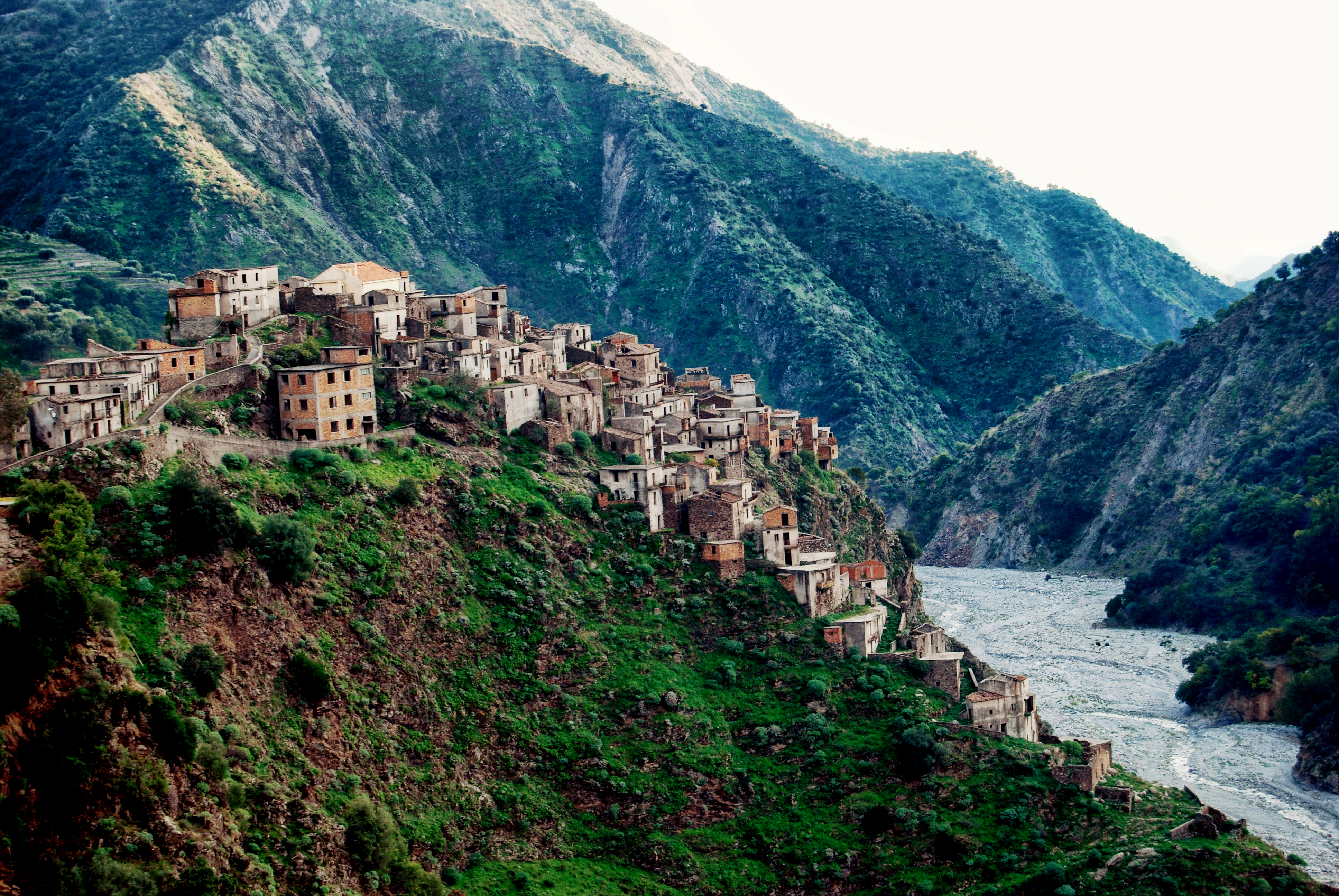


Perched on the Aspromonte and overlooking the Amendolea river, now almost completely dry, Roghudi was abandoned between 1971 and 1973, due to a flood and landslide emergency that had seriously endangered the safety of the population of the village, which then it had about 1650 souls.

Roghudi's long isolation has led to the maintenance of a very particular dialect, the Grecanico (or Calabrian Greek), a language that is a mixture between the ancient Greek of the territories of Magna Grecia and the Calabrian dialect. Among the Greek poets Roghudi gave birth to Mastr’Angelo Maesano, Francesca Tripodi, Salvatore Siviglia and Salvino Nucera; of the latter there are some works such as Agapào na Graspo (City of the Sun Editions) and Chalònero (Qualecultura). Grecanico is a fascinating and enigmatic language, an idiom of which very few knowers today and which, like the old village, is destined to disappear.

Small houses - but many, considering the 1650 inhabitants at the time of the exodus - today have become home to mice and bats, at ease between darkness and vegetation. The beds, chairs, furniture and wardrobes that are totally destroyed but still present in many houses, a sign of a life that was there and that is no longer there, generate a mixture of melancholy and restlessness. Winds of past times blow through the silent alleys of Roghudi, of old Greek legends that are handed down among the oldest, children in the Roghudi that was, now far from their native country.
Roghudi
Address: Via Roma, 16, 89060
Phone: 0965 789140
Site:
comunediroghudi.itLocation inserted by
Culturalword Abco